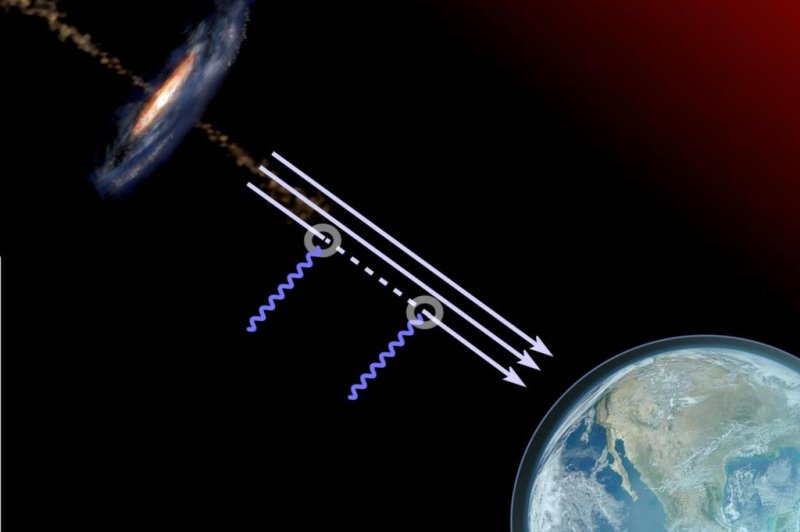A diagram shows gamma radiation being transformed into axion-like particles as it passes through a galaxy's electromagnetic field. Photo by Aurore Simonnet/Sonoma State University
STOCKHOLM, Sweden, April 22 (UPI) -- Scientists believe 80 percent of the universe is made up of dark matter. What exactly constitutes dark matter? Scientists still aren't sure.
A new study, published this week in the journal Physical Review Letters, grows the list of particles not found in dark matter.
Astronomers have previously hypothesized that axion-like particles, or ALPs, might make up dark matter. Given their diminutive size -- registering at a billionth the mass of a single electron -- it was a logical guess.
But when researchers at Stockholm University used NASA's gamma-ray telescope on the Fermi satellite to look for ALPs in the Perseus galaxy cluster, they came up empty-handed. ALPs can be briefly transformed into light-emitting matter when they travel through intense electromagnetic fields. Likewise, light particles like gamma radiation can briefly transform into ALPs.
No such transformations, however, were detected near the center of the Perseus cluster.
While the research didn't offer any revelations on the makeup of dark matter, scientists believe they can now exclude certain types of ALPs in the ongoing search for the elusive matter.
"The ALPs we have been able to exclude could explain a certain amount of dark matter," Manuel Meyer, a physicist at Stockholm University, said in a news release. "What is particularly interesting is that with our analysis we are reaching a sensitivity that we thought could only be obtained with dedicated future experiments on Earth."
So, the hunt for dark matter details continues.















